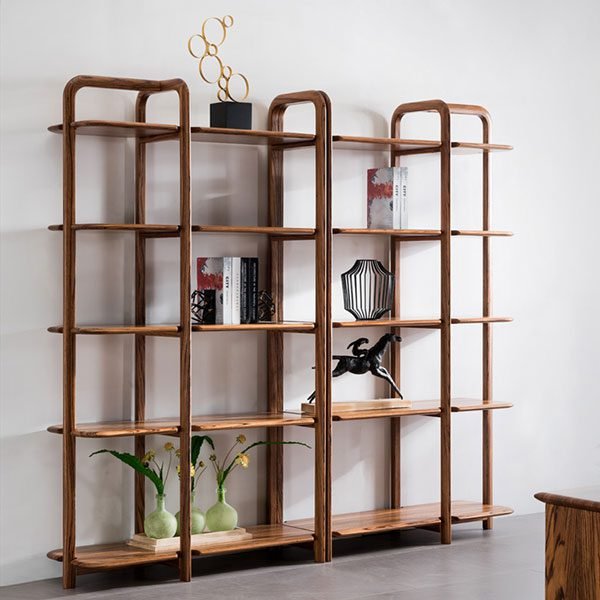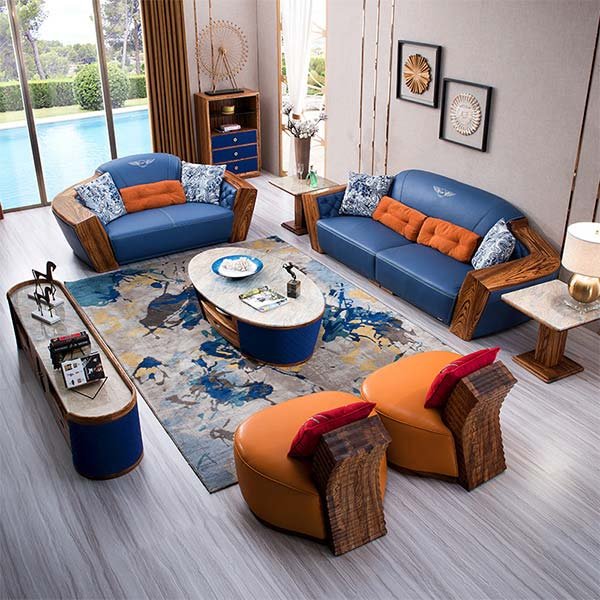“Building lasting relationships, one living room at a time.”
Effective Communication Strategies with Living Room Furniture Factories
Building long-term partnerships with living room furniture factories requires effective communication strategies. Clear and open communication is essential for ensuring that both parties are on the same page and working towards common goals. In this article, we will discuss some tips for establishing and maintaining successful partnerships with living room furniture factories.
First and foremost, it is important to establish clear expectations from the outset. This includes outlining the scope of work, timelines, and deliverables. By clearly defining what is expected from both parties, you can avoid misunderstandings and ensure that everyone is working towards the same goals. Regular communication is key to maintaining these expectations throughout the partnership.
In addition to setting clear expectations, it is also important to establish open lines of communication. This means being available to answer questions, address concerns, and provide updates on the progress of the project. Regular check-ins and status updates can help keep everyone informed and ensure that any issues are addressed promptly.
Another important aspect of effective communication with living room furniture factories is being proactive in addressing any issues that may arise. Instead of waiting for problems to escalate, it is important to address them head-on and work towards finding a solution. This can help prevent small issues from turning into larger problems that could jeopardize the partnership.
It is also important to be respectful and professional in all communications with living room furniture factories. This includes being mindful of cultural differences and language barriers that may exist. By showing respect and understanding towards your partners, you can build trust and strengthen the relationship over time.
In addition to verbal communication, it is also important to document all agreements and decisions in writing. This can help prevent misunderstandings and provide a clear record of what has been agreed upon. Written communication can also serve as a reference point in case any disputes arise in the future.
Finally, it is important to be open to feedback and willing to make adjustments as needed. Building a successful partnership with living room furniture factories requires a willingness to listen to your partners’ input and make changes to improve the collaboration. By being open to feedback and making adjustments as needed, you can strengthen the partnership and ensure its long-term success.
In conclusion, effective communication is essential for building long-term partnerships with living room furniture factories. By setting clear expectations, establishing open lines of communication, being proactive in addressing issues, showing respect and professionalism, documenting agreements in writing, and being open to feedback, you can establish a successful partnership that benefits both parties. By following these tips, you can build strong relationships with living room furniture factories that will stand the test of time.
Establishing Trust and Transparency in Partnerships with Living Room Furniture Factories
Establishing long-term partnerships with living room furniture factories is crucial for furniture retailers looking to maintain a consistent supply of high-quality products. Building trust and transparency in these partnerships is key to ensuring a successful and mutually beneficial relationship. In this article, we will discuss some tips for establishing and maintaining long-term partnerships with living room furniture factories.
One of the most important aspects of building a successful partnership with a living room furniture factory is communication. Open and honest communication is essential for establishing trust and transparency in the relationship. Regular communication with the factory about your expectations, requirements, and any issues that may arise is crucial for ensuring that both parties are on the same page.
Another important tip for building long-term partnerships with living room furniture factories is to visit the factory in person. By visiting the factory, you can see firsthand how the furniture is made, the quality of the materials used, and the working conditions of the factory workers. This can help you build trust with the factory and ensure that they are capable of meeting your standards and requirements.
It is also important to establish clear and detailed contracts with the living room furniture factory. The contract should outline the terms of the partnership, including pricing, delivery schedules, quality standards, and any other important details. Having a well-defined contract in place can help prevent misunderstandings and disputes down the line.
In addition to communication, factory visits, and contracts, it is also important to build a strong relationship with the factory staff. Getting to know the people who work at the factory can help you build trust and rapport with them, which can lead to a more successful partnership. Building a personal relationship with the factory staff can also make it easier to address any issues that may arise and find solutions together.
Transparency is another key aspect of building a successful partnership with a living room furniture factory. Being transparent about your expectations, requirements, and any challenges you may be facing can help build trust with the factory and ensure that both parties are working towards the same goals. Transparency can also help prevent misunderstandings and conflicts from arising in the partnership.
Finally, it is important to be patient and flexible when building a partnership with a living room furniture factory. Building a successful partnership takes time and effort, and there may be challenges and setbacks along the way. Being patient and flexible can help you navigate these challenges and work towards building a strong and lasting partnership with the factory.
In conclusion, building long-term partnerships with living room furniture factories requires open communication, factory visits, clear contracts, strong relationships with factory staff, transparency, and patience. By following these tips, furniture retailers can establish trust and transparency in their partnerships with living room furniture factories, leading to a successful and mutually beneficial relationship.
Implementing Quality Control Measures in Long-Term Partnerships with Living Room Furniture Factories
Building long-term partnerships with living room furniture factories is essential for ensuring a consistent supply of high-quality products for your business. However, maintaining these partnerships requires more than just signing a contract and placing orders. Implementing quality control measures is crucial to ensure that the products you receive meet your standards and expectations. In this article, we will discuss some tips for building long-term partnerships with living room furniture factories by implementing quality control measures.
First and foremost, it is important to establish clear communication channels with the factory. Regular communication is key to building trust and ensuring that both parties are on the same page. Make sure to discuss your quality standards and expectations upfront, so there are no misunderstandings later on. Additionally, be open to feedback from the factory and address any issues or concerns promptly. This will help to foster a collaborative relationship and ensure that both parties are working towards the same goals.
Another important aspect of building long-term partnerships with living room furniture factories is conducting regular quality inspections. Inspecting the products before they are shipped can help to identify any potential issues early on and prevent them from reaching your customers. Consider hiring a third-party inspection company to conduct these inspections, as they can provide an unbiased assessment of the product quality. Make sure to establish clear criteria for the inspections and communicate them to the factory to ensure that they understand your expectations.
In addition to regular quality inspections, it is also important to establish a quality control process within your own organization. This process should outline the steps that need to be taken to ensure that the products meet your standards. This may include conducting random spot checks on incoming shipments, testing the products for durability and functionality, and documenting any issues that arise. By implementing a quality control process, you can catch any issues early on and work with the factory to address them before they become a larger problem.
Furthermore, it is important to build a strong relationship with the factory’s management team. Developing a personal connection with key decision-makers can help to facilitate open communication and resolve any issues that may arise. Make an effort to visit the factory in person, if possible, to see their operations firsthand and build rapport with the team. By building a strong relationship with the factory’s management team, you can work together to address any challenges and improve the quality of the products.
Lastly, it is important to be proactive in addressing any issues that may arise. If you notice a decline in product quality or receive customer complaints, don’t hesitate to reach out to the factory to address the issue. Be specific about the problem and provide examples to help the factory understand the issue. Work together to come up with a solution and implement measures to prevent similar issues from occurring in the future. By being proactive in addressing quality issues, you can demonstrate your commitment to maintaining high standards and building a long-term partnership with the factory.
In conclusion, building long-term partnerships with living room furniture factories requires a proactive approach to quality control. By establishing clear communication channels, conducting regular quality inspections, implementing a quality control process, building relationships with the factory’s management team, and being proactive in addressing issues, you can ensure that the products you receive meet your standards and expectations. By following these tips, you can build a strong and lasting partnership with your living room furniture factory and provide your customers with high-quality products.
Conclusion
Building long-term partnerships with living room furniture factories requires clear communication, mutual trust, and a commitment to quality. By establishing strong relationships with suppliers, businesses can ensure consistent product quality, timely delivery, and competitive pricing. It is important to maintain open lines of communication, address any issues promptly, and work together to continuously improve processes. By following these tips, businesses can cultivate successful and lasting partnerships with living room furniture factories.



